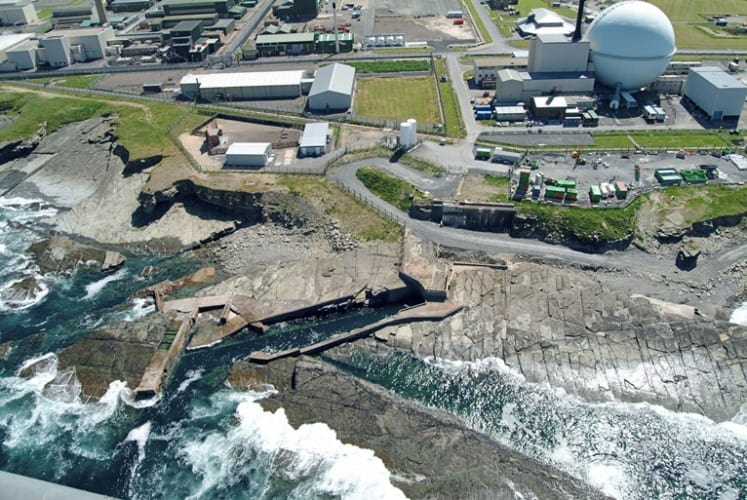Energy has been at the forefront of the debate over Scottish independence, and no wonder. The oil and gas reserves of the North Sea make it one of Scotland’s — and the UK’s — most important industries, and Scotland also has the greatest potential for renewables in Britain, with its windswept expanses, mountain hydroelectric schemes and the hurtling tidal races of the Islands. But one part of the energy spectrum has been absent from the debate — nuclear.

This is completely understandable. There are only two operational nuclear power stations in Scotland: Hunterston B and Torness, which has two reactors. And the Scottish Government’s policy is to shut these down and not commission replacements, making Scotland entirely nuclear-free. This policy, which has strong public support, is intended to increase the focus on developing and commercialising renewables technologies.
”Scotland is the only place in the world where there are people with experience of building, operating and decommissioning fast-breeder reactors.
But that’s not the whole story. Scotland is an important repository of valuable nuclear know-how, which should not be neglected. The presence of the Royal Navy’s nuclear submarine fleet in Faslane has led to a concentration of expertise in testing and maintenance of nuclear reactors — smaller than, but very similar to, the Pressurised Water Reactors that are set to be built for the UK’s new nuclear power stations. This expertise is located next to another important nuclear site, Dounreay, set in splendid isolation on the North coast facing the Orkneys.
The home of the UK’s fast-breeder reactor programme, Dounreay was established in the 1950s to develop and test liquid metal-cooled reactors that could generate plutonium from uranium; three of these reactors were built, with at least one in operation from 1958 to 1994 and supplying energy to the grid. This relatively short lifespan (which was curtailed by economics, not because of shortcomings in the technology — the price of uranium fell following the collapse of the Soviet Union, making it unnecessary to breed plutonium for nuclear fuel) means that Scotland is the only place in the world where there are people with experience of building, operating and decommissioning fast-breeder reactors.
And this is important. The generation of reactors being developed to supercede PWRs depends heavily on fast-breeder technology, because this type of reactor has the ability to use material classed as nuclear waste as fuel, reducing its risk profile; they also generally use fuel more efficiently than PWRs. It would be a great shame if this expertise were lost, especially as a Scottish university with a strong STEM background — Strathclyde, say — could help pass on the knowledge through dedicated courses.
’The current policy of wiping all trace of Dounreay from the face of the Earth risks losing its valuable expertise and the chance of redeeming some of its bad associations
Dounreay has been an emotive subject, with accidental releases of radioactive material into the North Sea continuing to blight areas of coastline and an explosion in a (then)-poorly maintained waste facility causing much alarm. The industry’s response to these events exemplified many of the worst aspects of the paranoia, secrecy and lack of care which characterised the nuclear industry in the 1970s and 80s, and the undeniable link between the breeder programme and the military (plutonium being the vital ingredient of nuclear weapons) makes the whole place unpalatable for some. But the current policy of wiping all trace of Dounreay from the face of the Earth risks losing its valuable expertise and the chance of redeeming some of the bad associations by using the lessons learned there for the benefit of mankind.
Make no mistake: the ambition to develop renewables is a good one. But whether or not Scotland votes for independence tomorrow, its nuclear history contains elements that should be safeguarded, not discarded.




Labour pledge to tackle four key barriers in UK energy transition
I'm all for clarity and would welcome anyone who can enlighten me about what Labour's plans are for the size and scale of this Great British Energy....